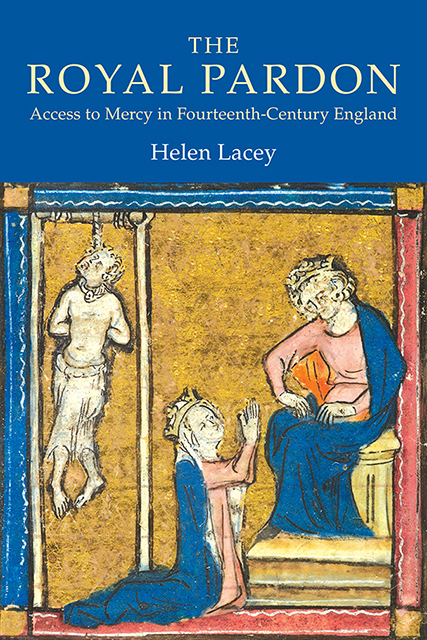Chapter Two - Procedures
Published online by Cambridge University Press: 07 March 2023
Summary
By the beginning of the fourteenth century the production of a royal pardon was a familiar method of claiming immunity from common law procedures. Suspects who could present a charter of pardon to the justices at the time of their arraignment were not required to answer formal charges, while those who secured one subsequently could seek acquittal, or even remission of a conviction. Similarly those in danger of infringing the feudal and proprietary rights of the Crown, by purchasing land without royal licence, for example, could purchase a pardon and thus circumvent cumbersome legal procedures. For anyone who stood in need of such a letter, one form of pardon was theoretically available to all of the king's subjects at any time. This was the ‘individual pardon’, so called because it only ever covered the offences with which one person might be accused. Those who sought an individual pardon would submit a petition, or have one submitted on their behalf, and each case was judged according to the particular circumstances that attended it. In routine cases the royal justices themselves could set the procedure of pardoning in motion, by exercising their power to recommend mercy. The criteria on which cases were judged remained largely consistent, and most routine requests appear to have been approved as a matter of course on the authority of the chancellor, who was empowered to act in the king's name (these are referred to as pardons de cursu). Alternatively, if the circumstances of the case were unusual, the decision might be referred to the king and council (pardons de gracia). Accordingly, the issue of individual pardons continued steadily throughout the century.
Regardless of the circumstances under which a royal pardon was issued, it must be remembered that it only ever provided indemnity from prosecution at the king's suit. After an individual had received a letter of pardon he or she was obliged to have it ‘proved’ in court, at which time it was declared that any appellant wishing to bring a suit against the recipient of pardon should come forward. Only after the pardon had been proved in this way would final peace be proclaimed. In one case from Edward II's reign it was noted that final peace was proclaimed by the marshal, who received 2s. for carrying out the service.
- Type
- Chapter
- Information
- Publisher: Boydell & BrewerPrint publication year: 2009
- 1
- Cited by



